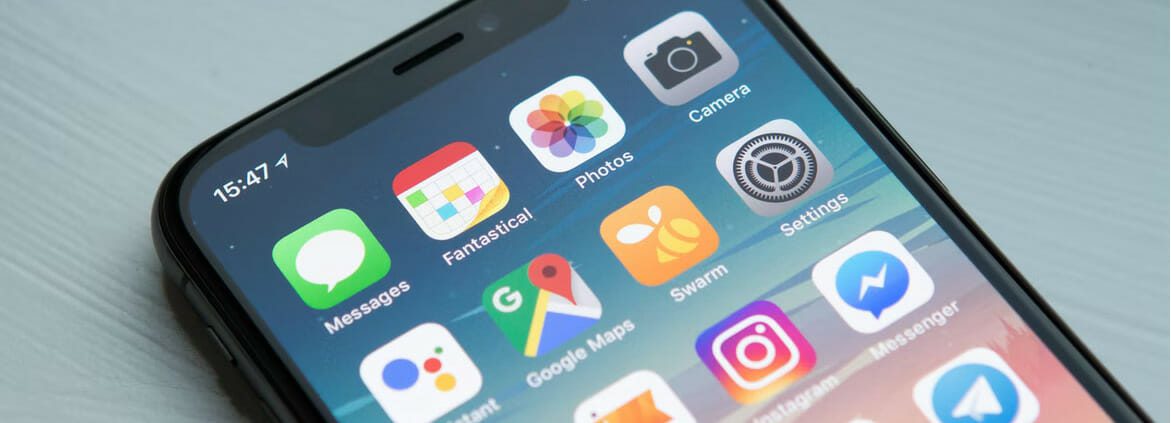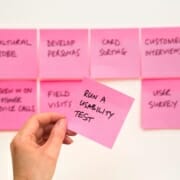What Makes an Effective Company App? 12 Features
Mobile apps are transforming businesses by giving innovative solutions to legacy problems. With a well-customized mobile app, you can communicate directly to customers, improve customer engagement, and design a personalized marketing channel.
When investing in a mobile app, companies look forward to building robust apps that will attain success in the shortest time. But this is not always the case. Most mobile apps get drowned in the sea of apps out there. This is why it’s important to learn the ups and downs of building a great mobile app.
To ensure your app meets the minimum requirements and provides maximum value, you must be aware of features that make your app stand out. Below, our mobile app development team looks at features that make an effective company app.
1. End-User Simplicity
A great UX design is determined by superior navigation and a clear interface. Interface and navigation enable an app to rank higher among other alternative apps. So, if your app is well-customized and easy-to-use, potential users will not have to look for alternatives. The end-user simplicity is a fundamental characteristic of award-winning apps that collect and maintain a large audience or user base.
2. Integrates IOS and Android
These are two most common operating interfaces. However, a service provider can offer a cross-platform development as a marketing gimmick for targeted clients. The leading cross-platform frameworks are ReactNative, PhoneGap, and NativeScript. These platforms and frameworks enable businesses to save costs while entering the market with a minimum viable product MVP. The ability to integrate and cover both Android and IOS is a key element of a successful company app.
3. Performance
Performance is a critical attribute of any successful company app. Performance refers to the way the app functions according to set requirements. Optimum performance means that the app meets the highest levels of outputs and meets set requirements and expectations. On the other hand, a poor app performance means that the app negates its key responsibilities and expectations. The app must load faster and particular attention should be given when pages or objects take long to load. The latency time must be kept to a minimum with constant app optimization.
4. Security
Cyber-attacks are posing significant threats to protected networks and systems, including critical enterprise resources. The compromise of a critical resource like the enterprise mobile application may pose a significant threat to customers. For instance, compromise of mobile apps may reveal personally identifying information (credit card numbers and social security numbers), or even compromise the integrity of protected health information PHI. So, a successful company app must have the necessary security infrastructure and posture to detect threats and patch unprotected networks. Luckily, mobile app developers can design apps with robust security infrastructures, protecting information, networks, and crucial resources.
5. Personalization
A personalized application reinforces close relationships with targeted prospects. Personalized app experiences create loyalty, raising awareness and leading to higher user retention levels. Users love products (and apps) that offer lots of customization possibilities. For effective company apps, it’s advisable to offer users limitless possibilities for customization. Winner apps incorporate details such as flexible backgrounds, fonts, color, and settings.
6. Great Image Resolution
A great app balances speed, functionality, and resolution. Most importantly, you have to ensure that what’s displayed on the screen is clear enough to make the user experience delightful. The world is way past the blocky graphics and today users expect hi-definition, 3-D images and multiple colors. A great image resolution must also sync seamlessly with the overall app’s functionality to ensure a smooth and rewarding user experience.
7. Search Icon
Provide users with an easy way to search and locate items and objects. The search functionality particularly matters for software products with high complex content. Therefore, it’s advisable to make every page and content as clear and easy-to-locate as possible.
8. Feedback Systems
Providing feedback is a great way to build and garner a reputation. So, it’s advisable to let users report bugs, give comments, and feedback about the app’s functionality, products, or brands through an open app forum. Giving users an opportunity to air their views and give grievances about products and app’s functionality leads to enhancing credibility and trust.
9. Social Integration
Social integration is a critical component for users connecting in the app’s ecosystem. Integrating with social networking channels simplifies using the app by enabling users to easily sign-up in the app. In addition, social integration allows users to share posts about events thus remaining fully connected in their social channels.
10. Customization
The app design process must consider customization as a key feature of aligning app features with customer preferences. By customizing the system functionality, layout, and content, the app viewing experience can be tailored to meet and respond to users’ needs.
11. App Analytics
The app must provide clear and accurate statistics and metrics. Clear visibility of user browsing trends enable businesses to monitor customer behavior, thus adjusting business practices to respond to consumer needs. Analytics is a critical component for mobile apps of all sizes and sophistication. Analytics track your app’s performance and optimize the app’s functionality.
12. Offline Access
Mobile apps work best where there’s a stable internet. Although connectivity is great for apps, there are apps where offline access would be appropriate. As a company, you must predict a situation where internet access would not be possible and provide features that work without internet connectivity. It’s difficult to categorize apps based on features because a majority of them depend on industry and app type.
Classifying The Features of a Successful Mobile App:
A successful mobile app integrates these features smartly: user, market and product. These elements need to integrate seamlessly and sync seamlessly to provide users with great usability, unique value, and superior performance. In examining what makes a successful mobile app, the features discussed above have been classified into two: customer-centric and business-centric features.
Customer-Centric Features
Customer-centric features denote attributes that evoke a positive emotional response to customers and targeted app users. Customer-centric features include:
- Nice and appealing design and layout
- Well thought out user interface and user experience
- Reliable and stable workflow
- Sufficient data protection
- Quick access to service desk
- Cover needs and specifications based on user needs
Business-Centric Features
Business-centric features refer to attributes that satisfy key business requirements. Business-centric app features include:
- Offer quick, hassle-free payments
- Encourage user retention
- Protecting data breach
- Easy update procedure
- Low maintenance and development costs
NS804 – Transforming Enterprise Mobile App Adoption
Mobile apps are at the forefront of the digital mobile revolution. Mobile apps provide diverse capabilities and superior functions – communication, interaction, emailing, purchasing, billing, and payments – all integrated into a simplistic app solution. That’s the reason most companies are accelerating their app adoption efforts to keep track of new industry developments.
Companies must ensure their mobile apps function effectively to meet evolving consumer needs even with the rising adoption of apps. A streamlined app experience will provide growth opportunities. There’s no doubt that mobile apps are proving as innovative solutions to bolster growth and build a competitive positioning.
You can contact NS804 for innovative mobile app solutions.

 https://unsplash.com/photos/9e9PD9blAto
https://unsplash.com/photos/9e9PD9blAto








 https://unsplash.com/photos/FPQlXQtjkqU
https://unsplash.com/photos/FPQlXQtjkqU https://www.pexels.com/photo/woman-sitting-beside-table-while-using-ipad-2265482/
https://www.pexels.com/photo/woman-sitting-beside-table-while-using-ipad-2265482/
Leave a Reply
Want to join the discussion?Feel free to contribute!